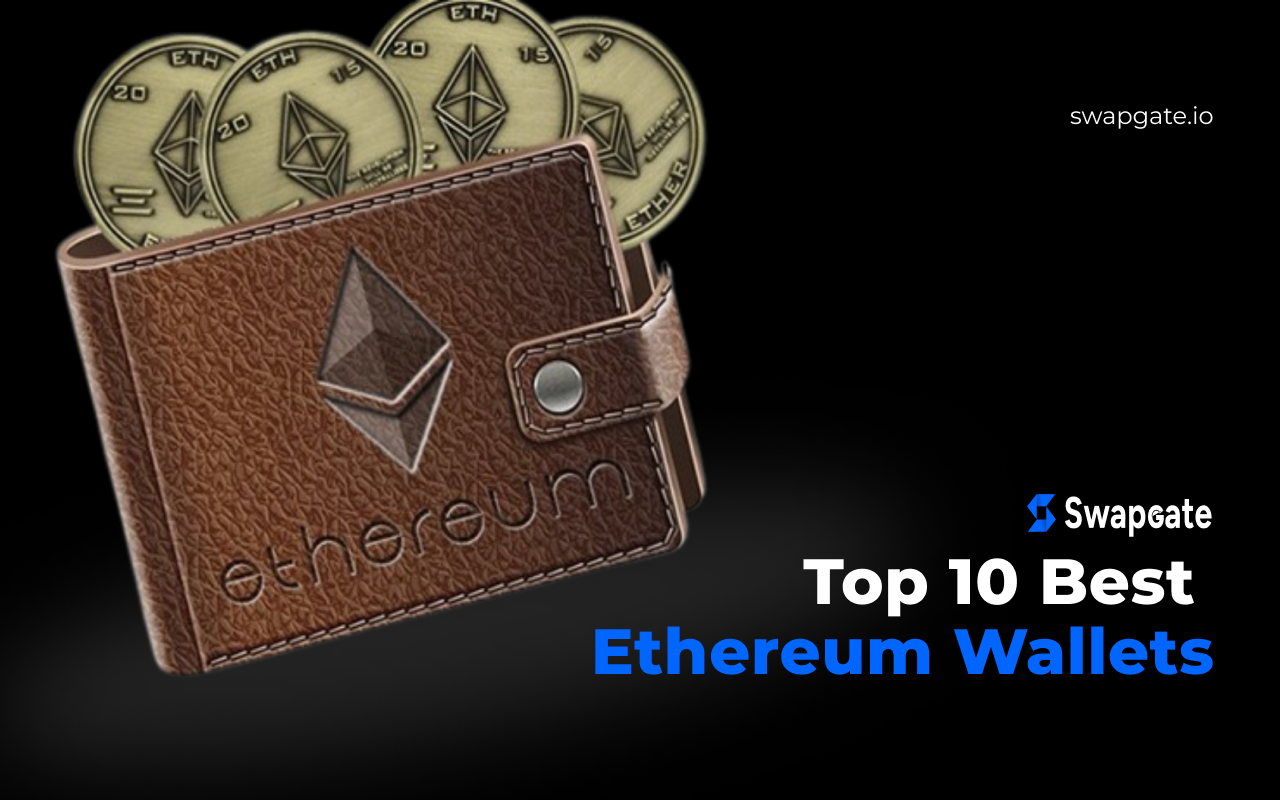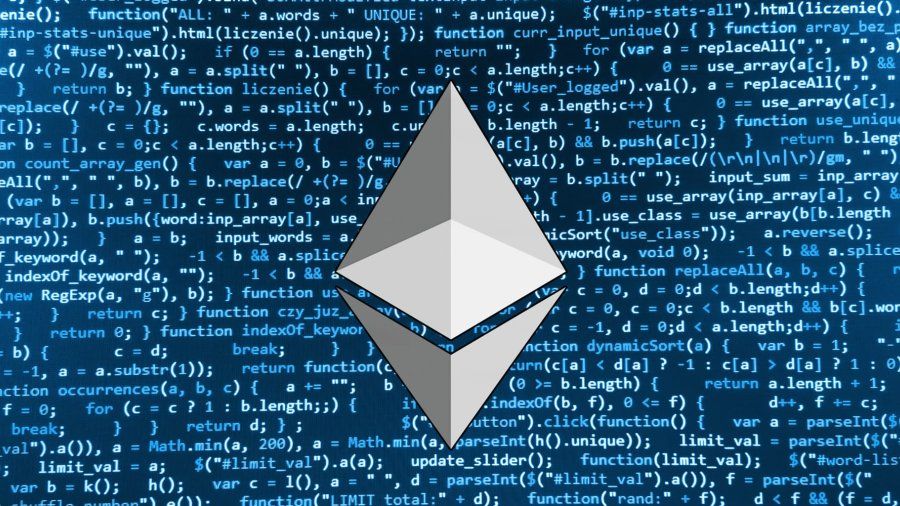
Ethereum is not just a cryptocurrency but a whole platform that allows the creation of decentralized applications (dApps). While Bitcoin is often compared to digital gold, Ethereum is more like an operating system for the economy of the future. Like any digital asset, Ethereum requires secure storage. An Ethereum wallet is not a physical item, but software or a device that stores your private keys. These keys give you access to your Ethereum coins and tokens built on its blockchain. Without a wallet, you cannot send or receive Ethereum.
What is an Ethereum wallet?
Imagine a bank account, but for digital assets. That’s the role an Ethereum wallet plays. In reality, the wallet doesn’t store the actual Ethereum coins but the private keys that allow you to manage them.
The Ethereum blockchain, like a huge public ledger, records all Ethereum transactions. Your wallet is your key to this ledger. The private key, generated when you create a wallet, is like the password to a bank vault. Knowing this key allows you to make transactions with your Ethereum. The public key, which can be shared freely, is like your bank account number, where other users can send you Ethereum.
Types of cryptocurrency wallets
Cryptocurrency wallets can be divided into two main categories: hot and cold.
Hot wallets: These wallets are always connected to the internet. They provide convenient access to your funds but are more vulnerable to hacking. Hot wallets include:
- Mobile wallets: Installed on smartphones, ideal for everyday transactions.
- Web wallets: Accessible through a browser, easy to use, but require trust in third-party services.
- Desktop wallets: Installed on a computer, offering a higher level of security than web wallets.
Cold wallets: These wallets are not connected to the internet. They provide maximum security for your funds but are more complex to set up and use. Cold wallets include:
- Hardware wallets: Physical devices resembling a USB stick that store your private keys offline.
- Paper wallets: Private keys are printed on paper and stored in a safe place.
Criteria for choosing an Ethereum wallet
Choosing the right Ethereum wallet is an important step for any cryptocurrency holder. There are many options available, each with unique features. To make the right choice, consider several key factors.

Security
The security of your funds should be your top priority when choosing a wallet. Pay attention to the following aspects:
- Private key storage: The ideal wallet should allow you to fully control your private keys. This means you store them securely yourself and don’t hand them over to third parties.
- Two-factor authentication (2FA): This feature adds an extra layer of protection by requiring confirmation of transactions using a second device (e.g., a smartphone).
- Backup: The ability to create a backup of your private keys ensures you can restore access to your funds if you lose your device.
- Developer reputation: Choose wallets developed by trusted teams with a solid reputation.
Functionality
Modern Ethereum wallets offer a wide range of features. When selecting a wallet, look for the following capabilities:
- Support for various tokens: In addition to Ethereum, the wallet should support popular ERC-20 tokens.
- Integration with decentralized applications (dApps): Many wallets allow interaction with various dApps, such as decentralized exchanges, games, and more.
- Staking: The ability to participate in Ethereum staking and earn passive income.
- Cryptocurrency exchange: Some wallets offer built-in cryptocurrency exchange features.
Ease of use
User-friendliness is crucial, especially for beginners. Consider the following aspects:
- Interface: The wallet should have an intuitive interface that is easy to navigate.
- Mobility: Access to the wallet from a mobile device is important.
- Multilingual support: Availability of a Russian-language version, or your preferred language, can simplify wallet usage.
Cost
Wallets can be either free or paid. Paid wallets usually offer additional features or a higher level of security. When choosing a wallet, consider your financial needs and the required features.
Community and support
An active user community and reliable customer support are important factors that can help you if you have questions or issues.
Ethereum Wallet: Top 10 Best
The choice of a specific Ethereum wallet depends on your individual needs and preferences. Below is a list of the 10 most popular and reliable wallets that are worth your attention.
Wallet Comparison Table
| Wallet | Type | Security | Functionality | Ease of Use | Cost |
|---|---|---|---|---|---|
| MetaMask | Hot | Medium | High | High | Free |
| Trust Wallet | Hot | Medium | High | High | Free |
| Ledger Nano S | Cold | High | Medium | Medium | Paid |
| Trezor Model T | Cold | High | High | Medium | Paid |
| MyEtherWallet | Hot | Medium | High | Medium | Free |
| Coinbase Wallet | Hot | Medium | High | High | Free |
| Atomic Wallet | Hot | Medium | High | High | Free |
| Exodus | Hot | Medium | High | High | Free |
| Guarda Wallet | Hot | Medium | High | High | Free |
| Argent | Hot | Medium | High | High | Free |
Popular Ethereum Wallets: Descriptions
- MetaMask: One of the most popular web wallets, available as a browser extension. It is known for its ease of use and broad support for dApps.
- Trust Wallet: A mobile wallet developed by the Binance team. It supports a wide range of cryptocurrencies and has an integrated exchange feature.
- Ledger Nano S and Trezor Model T: Hardware wallets that offer maximum security for your funds. They are more expensive but considered some of the most reliable options on the market.
- MyEtherWallet: An open-source web wallet that allows full control over your private keys.
- Coinbase Wallet: A mobile wallet from the popular cryptocurrency exchange Coinbase. It features a user-friendly interface and extensive functionality.
This table is a general overview and may not reflect all the nuances of each wallet. It is recommended to study the details of each wallet on its official website before making a decision.
How to Choose the Right Ethereum Wallet
Start by identifying your needs. If you require a wallet for everyday transactions, a hot wallet with an easy-to-use interface will be suitable. If you plan to store large amounts for a long time, it’s better to choose a cold wallet. Consider which features you need (support for various tokens, dApp integration, staking, etc.).
Choose wallets that provide a high level of security for your funds. Also, remember that the wallet should be intuitive and easy to use.
Conclusion
So, which wallet should you choose for Ethereum? There’s no definitive answer. Each wallet has its own advantages and disadvantages, and the choice ultimately depends on your individual needs and preferences.
Regardless of the wallet you choose, always follow security guidelines: use strong passwords, enable two-factor authentication, create backups of your private keys, and store them in a secure place.
Tips for Beginners
- Start with a hot wallet: If you’re new to Ethereum, a hot wallet is likely the most convenient option.
- Explore different wallets: Read user reviews, compare features, and choose the wallet that best suits your needs.
- Don’t store all your funds on one exchange: Spread your assets across different wallets for added security.